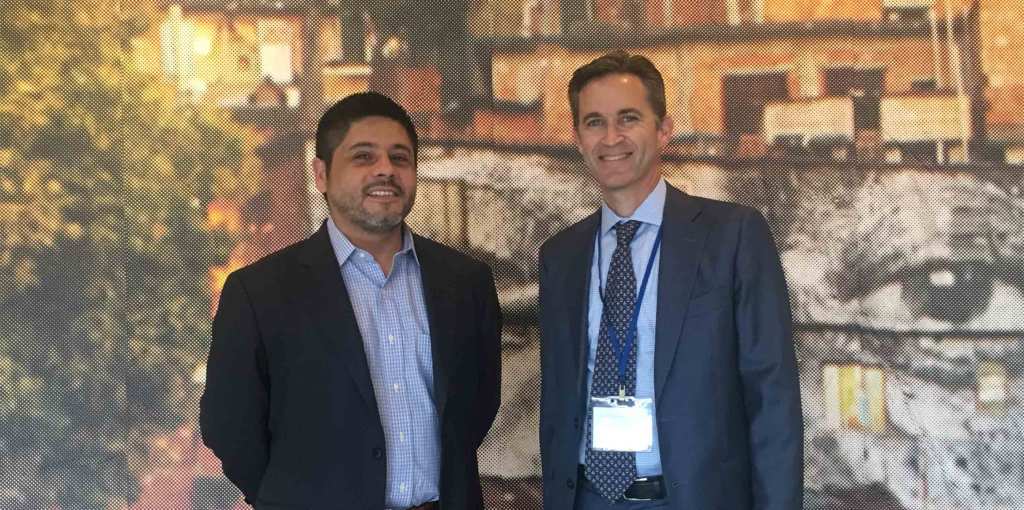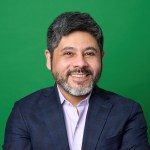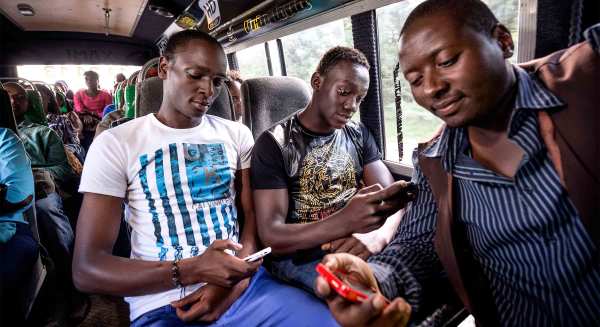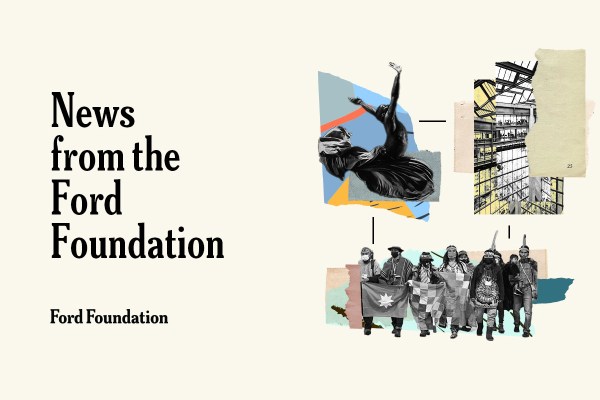 Ford Foundation
Ford FoundationHow is the Internet changing the right to free speech, press, and expression?
David Kaye, the United Nations special rapporteur for freedom of expression and opinion, grapples with this question every day. Appointed in 2014, Kaye acts as an independent expert working on behalf of the UN to protect the human rights required for freedom of expression. He collaborates with governments and private actors—such as journalists, activists, academics, artists, and civil society—to monitor and address human rights violations and controversial legislation that inhibits free speech, media, and expression.
In his role, he also presents reports and legislative comments on these issues to the UN Human Rights Council, the UN General Assembly, and regional governments. In fact, Kaye recently submitted legislative comments against a US Homeland Security proposal to request travelers’ social media information on certain immigration forms because it could be used to discriminate against them based on their religious beliefs, race, political views, or opinions.
David Kaye recently visited the Ford Foundation, so I took the opportunity to ask him a few questions about his work and how protecting and ensuring people’s rights to freedom of expression are changing in an expanding digital world.
Alberto Cerda: What do you think are the major challenges inhibiting freedom of expression around the world today?
David Kaye: There is a long history of building a global framework to protect people’s rights to freedom of expression. For example, the International Covenant on Civil and Political Rights (ICCPR), which 168 states have ratified (including the United States), outlines the civil and political rights of individuals, and Article 19 of the ICCPR is dedicated to freedom of expression. It recognizes that governments may restrict freedom of expression when it’s necessary and proportionate to protect national security, public order, and the rights of others.
Unfortunately, right now, we’re seeing a global assault on freedom of expression. Around the world, governments are stretching the meaning of what’s permitted: They define national security in broad, vague ways that make it difficult for individuals to know what speech or opinions are allowed and what may be subject to penalty, they apply restrictions that go well beyond what is necessary to address specific threats, and they fail to justify their restrictions. We see this happening particularly in the digital space, with restrictions on the media, and with attacks against civil society and organizing.
What does the right to freedom of expression mean in today’s digital age? What new challenges and issues do you see emerging?
The Internet and digital communications technology pose new challenges for freedom of expression, but they are actually the same problems we’ve seen since the advent of human rights law: governments trying to restrict the flow of information, clamp down on criticism, and keep track of citizens. The digital information age provides remarkable access to information and ideas, but by participating in it, we often unknowingly sacrifice our privacy and personal information to governments and companies. I have taken to saying that we no longer just read the newspaper; the newspaper reads us.
One example is related to the freedom to maintain opinions without interference. There is limited interpretation around this right because the authors of Article 19 likely believed the right to hold an opinion is indisputable—governments can’t access what’s in our minds. However, today we digitally store so much of what’s in our minds in the cloud, on our laptops, and on our local servers, the very places subject to attack and surveillance by governments. I’m worried that privacy concerns resulting from the wealth of information available online will lead to a lack of information sharing on digital platforms and self-censorship.
How have freedom of expression issues, especially those related to freedom of press and speech, evolved in the digital age?
The digital age has fundamentally allowed for any voice to capture an audience, expanding our options to many more communications platforms and outlets beyond mainstream media outlets. Part of my mandate is to protect the voices of journalists and the media, and as the number of media outlets increases, so do the voices that need protecting. Several years ago, people thought new forms of social media like Twitter and Weibo would harm traditional journalism. While journalism is changing, long-form writing is thriving and legacy media outlets are adopting innovative ways to display information and tell stories, such as the use of virtual reality. The threats to expression online must not overshadow the opportunity for expansion of innovation, creativity, and expression.
You’ve written a lot about the importance of encryption and anonymity in protecting freedom of expression. Can you explain why encryption and anonymity are so important?
Both encryption and anonymity are fundamental to creating the privacy and security necessary for free thought and expression. But too often they are described as tools used by criminals and terrorists. While bad people and actors will always make use of these tools, as with any morally neutral technology, the reality is, activists, journalists, artists, and even law enforcement officials around the world depend on encryption and sometimes anonymity to protect themselves and their important work.
There are vulnerable communities whose members can only engage in communications with one another if they do so in a secure way. My 2015 report alluded to some of these groups, such as LGBT communities or religious minorities in hostile environments, or simply those seeking information about politically or socially unpopular topics. When they are not geographically close to each other and need to communication digitally, encryption ensures their security. Anonymity also provides the ability for individuals to seek out information that if not protected could lead to stigmatization, discrimination, or worse.
Here at the foundation when we talk about freedom of expression, we often think about artists and journalists. Can you talk about the role artists and journalists play in the rights you are trying to protect and the challenges they face trying to do this?
Article 19 protects everyone’s right to seek, receive, and impart information and ideas of all kinds—including journalists and artists. Journalists serve as watchdogs over governments and the private sector and draw the public’s attention to important issues. Governments and private actors in many places try to silence journalists and create threatening environments for them. For example, last year, I published a report about how confidential sources and whistleblowers, like Edward Snowden, are a crucial element of a healthy democracy, and that governments should protect them rather than prosecute them.
Likewise, artists expand the value and dynamism of public life through self-expression. When they use their art to uncover bad government or corporate behavior, they often can experience backlash and suppression. Protecting the rights of artists is a new part of my work and my team and I are thinking through how best to do it. We are at the early stages of planning a meeting to convene artists, advocates, and academics to think through new approaches to protecting artistic expression.
Free speech and expression rights usually fall under the responsibility of governments, but more and more we see that companies have a role as well. What role does the private sector have in protecting these rights?
Companies like Facebook and Twitter have created digital platforms where billions of people around the world voice their opinions and thoughts. While these spaces behave as open forums, the regulations, community standards, and terms of service that govern them are dictated by the companies themselves. Human rights law and global standards are not necessarily considered in these guidelines. At the same time, governments pressure these companies to censor content or shut down networks in times of public protest, as well as to solve public policy problems like expanding access to online resources.
What additional issues and challenges do you plan to prioritize in the coming years?
The most pressing issues are government interference with expression—such as censoring groups or blocking Internet access—and private sector regulation, such as Facebook or Twitter removing controversial posts. They present real challenges to how we protect and promote freedom of expression today, especially when governments pressure private companies to interfere with free expression.
I am also concerned that the growing abuse—such as misogyny, racism, anti-Semitism, Islamophobia, et cetera—in digital spaces could push many people to opt out entirely. That’s a real loss. We need to find ways to protect expression but also protect those subject to real abuse.


